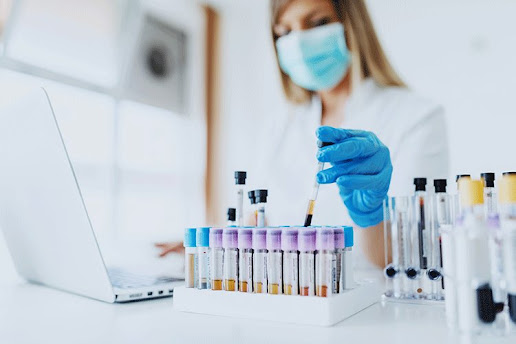Exploring the Science Behind Blood Tests for Body Analysis
Introduction:
Blood tests serve as a cornerstone in modern medicine, offering invaluable insights into one's health and well-being. Delving into the science behind these tests illuminates the intricate mechanisms through which they analyze various aspects of the body. This comprehensive guide explores the significance of Blood Tests for Body Analysis in Dubai, covering their role in detecting diseases, assessing organ function, and guiding lifestyle modifications for optimal health.
Understanding Blood Tests
What Are Blood Tests?
Blood tests, also known as blood screenings or blood work, involve analyzing a sample of blood to assess various aspects of health. These tests provide vital information about the body's functioning, including levels of hormones, nutrients, cholesterol, and markers for specific diseases.
Types of Blood Tests
There are numerous types of blood tests, each serving a unique purpose in evaluating different aspects of health. Common types include complete blood count (CBC), lipid panel, metabolic panel, thyroid function tests, and infectious disease screenings.
Importance of Blood Tests
Blood tests play a crucial role in preventive care, early disease detection, and monitoring of chronic conditions. They provide valuable insights that enable healthcare professionals to make informed decisions about diagnosis, treatment, and lifestyle interventions.
Role in Disease Detection
Detecting Diseases
Blood tests are instrumental in detecting a wide range of diseases, including diabetes, cardiovascular disorders, autoimmune conditions, and various types of cancer. By assessing biomarkers and specific blood components, these tests aid in early diagnosis and intervention.
Screening for Chronic Conditions
Regular blood screenings are essential for monitoring chronic conditions such as hypertension, hyperlipidemia, and diabetes. These tests help track disease progression, evaluate treatment efficacy, and prevent complications through timely interventions.
Identifying Nutritional Deficiencies
Blood tests assess nutrient levels in the body, identifying deficiencies that may contribute to various health issues. Common deficiencies detected through blood tests include iron, vitamin D, vitamin B12, and folate, which can impact energy levels, immune function, and overall well-being.
Assessing Organ Function
Liver and Kidney Function Tests
Blood tests evaluate the function of vital organs like the liver and kidneys by measuring enzymes, proteins, and waste products in the blood. Abnormal levels of these markers indicate potential liver or kidney dysfunction, guiding further diagnostic evaluation and treatment.
Thyroid Function
Thyroid function tests assess hormone levels produced by the thyroid gland, crucial for metabolism, growth, and energy regulation. Abnormal thyroid function detected through blood tests can indicate conditions such as hypothyroidism or hyperthyroidism, requiring medical management.
Heart Health Markers
Blood tests include markers that assess heart health, such as cholesterol levels, triglycerides, and cardiac enzymes. These markers provide insights into cardiovascular risk factors, guiding interventions to prevent heart disease and stroke.
Impact on Wellness
Monitoring Treatment Efficacy
Blood tests are essential for monitoring the effectiveness of medical treatments and interventions. They track changes in biomarkers and disease markers, ensuring that treatment plans are optimized for the best possible outcomes.
Preventive Health Measures
Regular blood screenings are integral to preventive healthcare, allowing for early detection of potential health issues before they escalate into serious conditions. By identifying risk factors and abnormalities, blood tests empower individuals to take proactive steps towards better health.
Personalized Health Recommendations
Based on blood test results, healthcare professionals can provide personalized recommendations for diet, exercise, medication, and lifestyle modifications. This tailored approach to healthcare promotes optimal wellness and disease prevention.
Conclusion
In conclusion, exploring the science behind Blood Tests for body analysis reveals their indispensable role in modern healthcare. From disease detection to organ function assessment and wellness monitoring, blood tests provide invaluable insights that empower individuals to take proactive steps towards better health. By understanding the significance of blood tests and incorporating them into routine healthcare practices, individuals can optimize their well-being and longevity.




Comments
Post a Comment